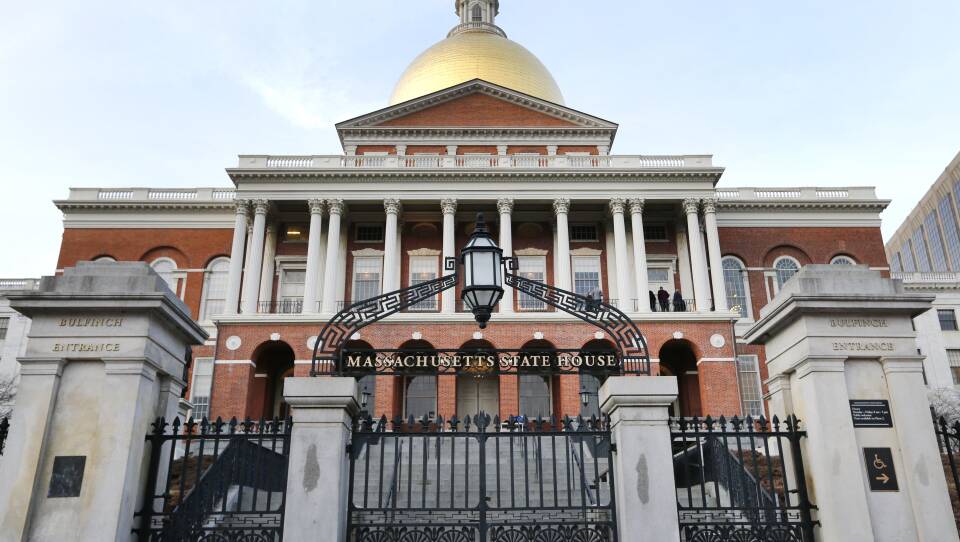Advocates who accused the Roxbury-based community development financing company BlueHub Capital of predatory lending are calling on Gov. Maura Healey to veto a piece of the recently passed $4 billion economic development bill that would make the company’s unusual lending practices explicitly legal.
Jefferey Wiesner, an attorney representing homeowners who claimed in Suffolk County Civil Court that they were misled into debt to BlueHub, called the provision an “extraordinary” attempt to shield a company from existing laws and a pending lawsuit.
“Governor Healey knows better than anyone, as the former attorney general with a record of consumer advocacy, just how extraordinary it is for legislation to give a single corporation immunity from the consumer protection statutes and that is especially in the highly regulated area of mortgage finance,” he said.
BlueHub, through its SUN program, refinances or buys homes in foreclosure and sells them back to their original homeowners with more affordable payments.
“Homeowners in foreclosure have a near impossible time getting a new mortgage because they are seen as risky borrowers by traditional lenders,” said a company brief on the program. “BlueHub SUN offers this service to eligible homeowners, despite the huge financial risk, because it is a mission-based lender.”
The program operates in 10 other states and “has helped 1,200 families retain or regain homeownership and avoid the harmful effects of eviction,” the company brief said.
Wiesner and those suing BlueHub allege that part of the issue is that the company fails to properly notify new, vulnerable customers that they’re entering into a second, shared appreciation mortgage, in which a borrower typically gets a lower monthly payment and a lower interest rate in exchange for promising the lender a portion of their homes’ appreciated value.
In a state like Massachusetts — where multiple real estate brokerage sites have reported that the median home sale price has increased more than 5% when compared to last year — that can mean hundreds of thousands of dollars for the nonprofit BlueHub, taken from people once struggling on the brink of foreclosure.
Pointing to that, and BlueHub CEO Elyse Cherry’s consistent financial support of Healey’s political campaigns over the past decade, Wiesner argued if the provision passes into law, “it is difficult to draw any other conclusion than that BlueHub is being given a very special favor, and that will be at the expense of middle- and low-income homeowners.”
Lawmakers approved the bill and its provision related to BlueHub’s shared appreciation mortgages last week. It does not mention the company by name and would extend protections to any other nonprofit entity with a similar foreclosure rescue model. It includes a template for a notice of shared appreciation mortgage agreement that does not require explicit disclosures to customers about what percentage of their home appreciation value they’d be obligated to share in their deal.
The bill also states that once a customer enters into a shared appreciation mortgage, the lender “shall not be liable for monetary relief, injunctive relief or other equitable relief” offered through state laws that deal with consumer protection, regulation of business practices, consumer credit cost disclosure, predatory home loan practices or criminal usury, the issuing of loans at unreasonably high interest rates.
Cherry said she does not think her nonprofit will be afforded special treatment and defended her political giving as necessary.
“We take civic leadership very, very seriously,” she said in an exclusive interview with GBH News, adding that “Maura Healey is not the only person I have contributed to over the years by a long shot.”
Since Healey became attorney general in 2015, Cherry has maxed out yearly contributions to Healy’s political campaigns. Cherry has also hosted fundraisers for Healey and, according to the Boston Globe, the two women have known each other on a personal level for decades.
“I think we have an absolute obligation to help assure that people whose values we respect get into office,” Cherry continued. “And that requires talking to them and it requires money. So, I am proud of what I’ve done over the years to try and be sure that we have good leadership on the political side.”
Cherry also rejected the accusation that the company fails to adhere to proper disclosure laws when entering into agreements with new customers.
“We actually notify people who are entering into shared appreciation mortgages many times during the process,” she said, adding that BlueHub conducts business in a way “that is consistent with the needs of low income communities and people and that takes into account all the various players and allows us to work.”
The provision does allow Attorney General Andrea Campbell, who expressed opposition to the measure when appearing on GBH’s Boston Public Radio in September, to make further rules for its implementation.
Cherry called that one of the most important parts of the bill.
Campbell’s office said in a statement that she “continues to have serious consumer protection concerns” with the BlueHub related provision.





